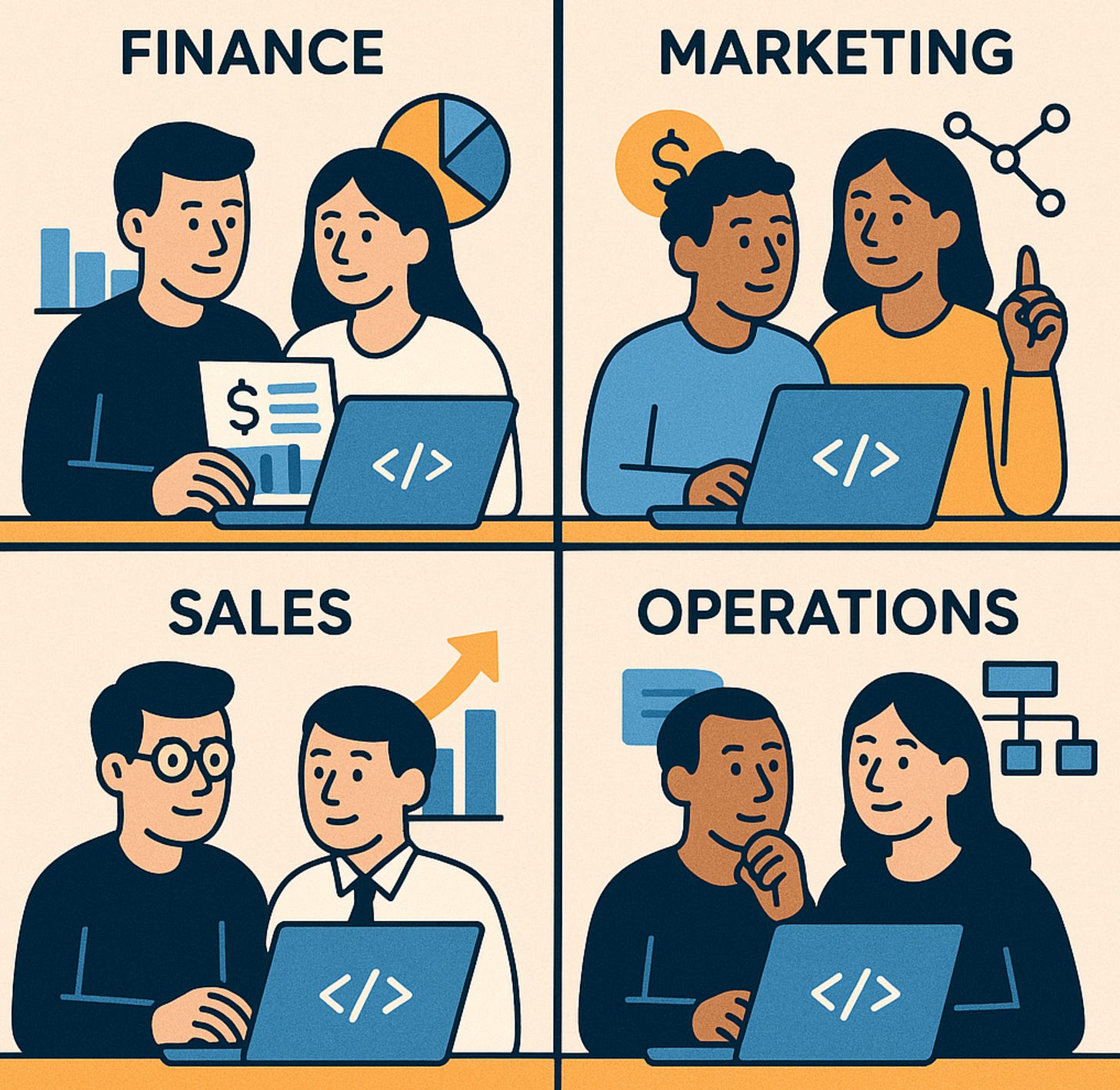What if every function inside a company had its own software engineer?
Finance could have someone building analytics that show exactly where money is going and how efficiently it’s being spent. Marketing could have an engineer mapping attribution of every campaign dollar, helping leaders decide which experiments to double down on. Sales could get support analyzing revenue numbers, territory splits, discounting strategies, and compensation plans through what-if models. Operations could benefit from engineers automating workflows, monitoring bottlenecks, and running optimizations on logistics or staffing.
None of this happens today. Embedding engineers into non-engineering functions is prohibitively expensive, even if you could hire enough engineers in the first place. Most companies reserve technical talent for core product development, while the rest of the organization relies on dashboards, spreadsheets, and the occasional custom report.
This picture is starting to change. With the arrival of “junior AI software engineers”, the idea of each department having its own engineering capacity becomes possible. These AI engineers don’t replace humans who build core systems, but they provide programmable, analytic horsepower to every business team.
The benefits compound quickly. Finance teams can build dynamic forecasting tools instead of static Excel models. Marketing can run attribution analysis that used to require specialized agencies. Sales can continuously adjust quota and territory plans in response to shifting market conditions. Operations can re-route resources in real time. What used to take weeks of back-and-forth with a centralized data team becomes a daily capability inside each function.
Anthropic has already provided a glimpse of this future. Their teams use Claude Code in finance, legal, and recruiting to automate analysis and decision support (link). What’s novel isn’t that engineers can help business functions—we already know that—but that AI makes this scalable and affordable enough to matter everywhere.
This is the future I’m most excited about: embedding the power of software engineering into every corner of the enterprise. When every function can code, model, and automate at will, companies allocate resources more intelligently, make faster decisions, and grow more efficiently. It’s not about replacing people. It’s about raising the baseline productivity of entire organizations by making engineering accessible everywhere.


